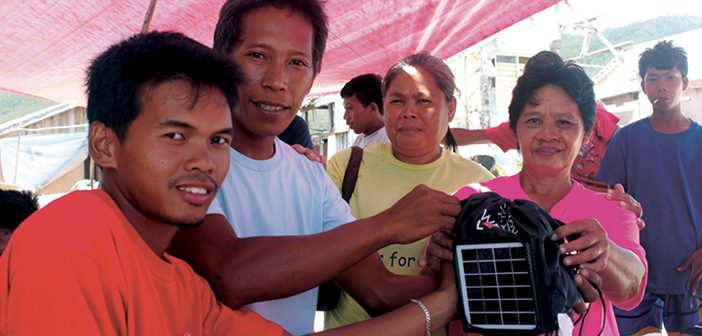“No one wants to come here,” Evelina Darang, barangay captain of Habag, Homonhon, said in the vernacular. Perhaps it is with good reason.
To reach the barangay by sea, boats would have to fight rough waves. Even seasoned fishermen hesitate travelling by boat. “The seas are different here,” they said in Filipino. By foot, travelers have to walk for hours through rough terrain.
This difficulty isolates Habag from most resources more available to other barangays in Homonhon. When Yolanda came, people from Habag had to wait two weeks before the relief came. More than anyone in Homonhon island, perhaps Habag needed help the most. While the rest of the island experienced only strong winds, three tidal waves washed over Habag, ruining homes and infrastructure.
Medical help is scarce, save for a few doctors who visit only once or twice a year. The lone midwife in Homonhon lives three to four hours away by boat.
Electricity is also virtually impossible in Habag. Before Yolanda, a few families owned generators. The barangay itself owned solar panels. But the storm tore off most of the solar panels, leaving only a single solar panel in place.
Operation Blessing helped the people of Habag by blessing each family with a solar lamp set from “Watts of Love,” a global solar lighting nonprofit organization. “We are very grateful,” said Capt. Darang. “This is a great help to us, for everyone’s livelihood and for our children who need to study. Your coming here is a really good thing.”
Operation Blessing, in partnership with the barangay’s health workers, also provided medical attention and medicines to the families of Habag. They also partnered with a local church in Homonhon to provide trauma counseling to the people. Truly, Operation Blessing’s visit brought light and hope to the once dark island of Habag.







